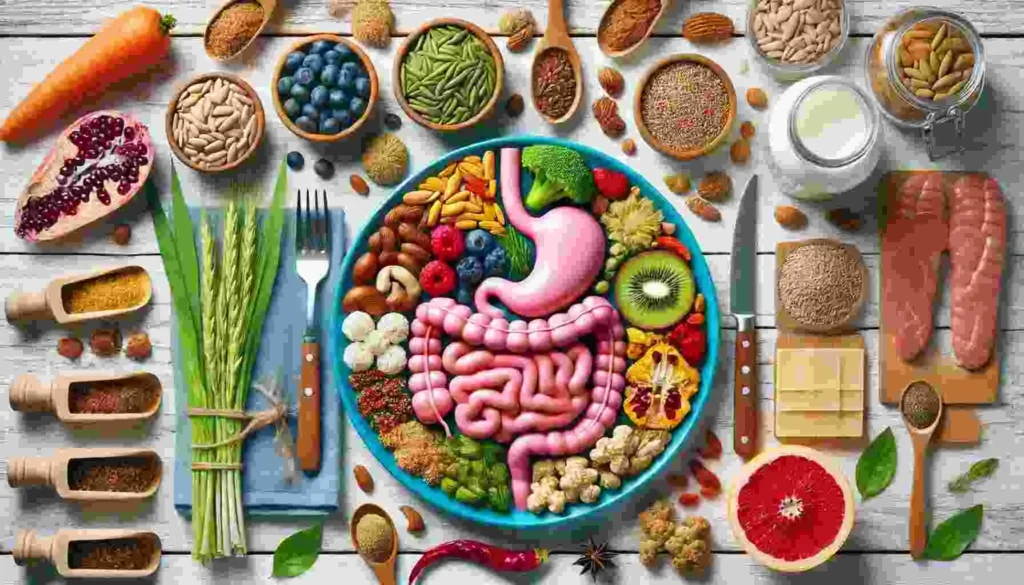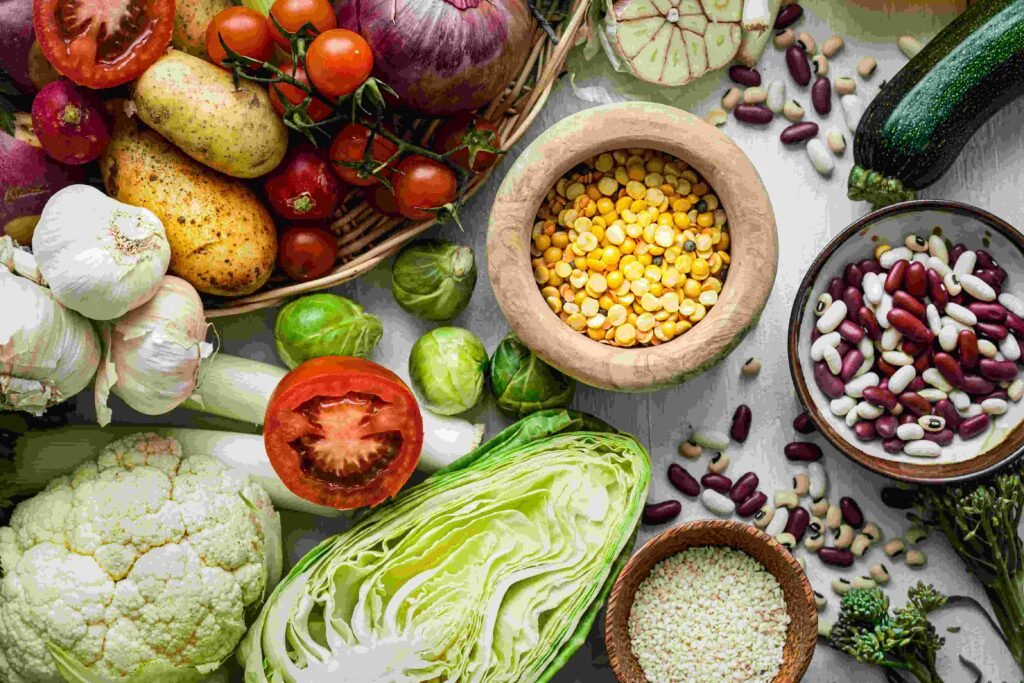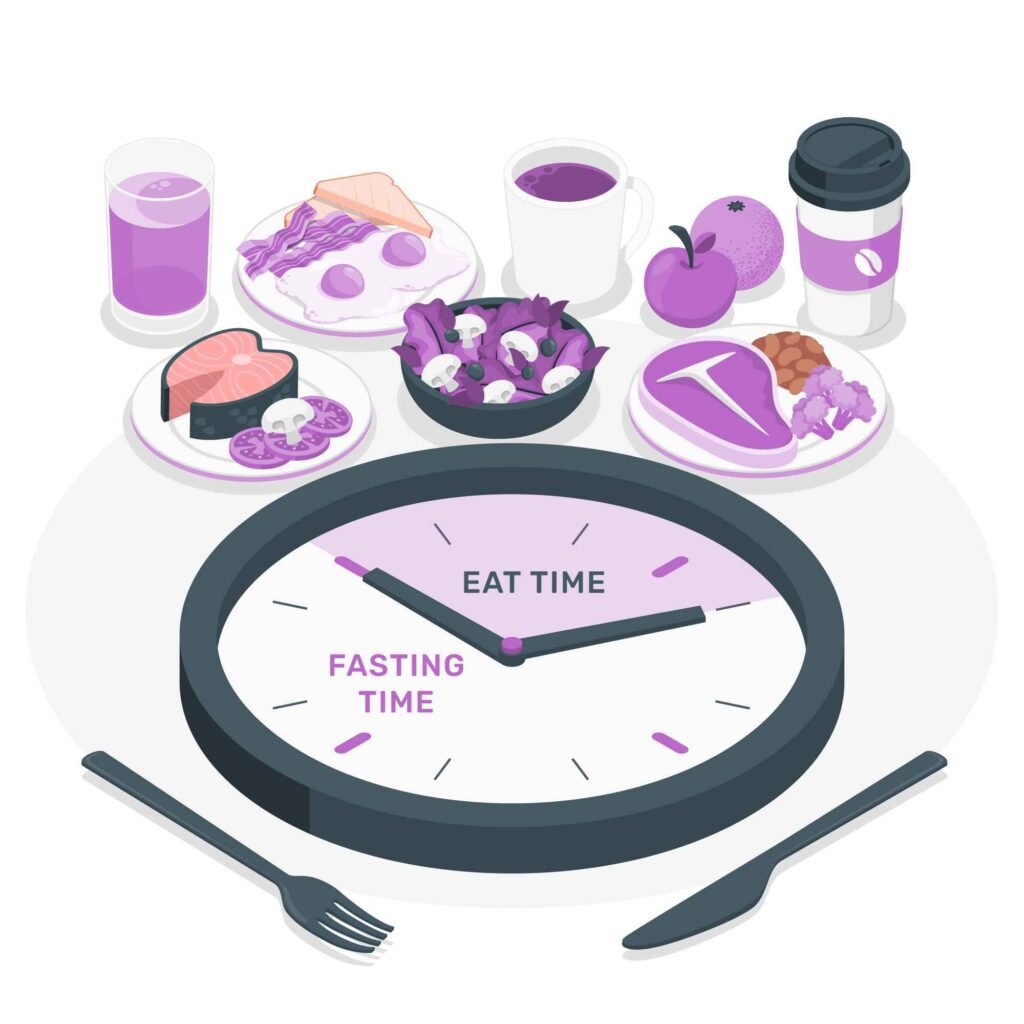
Gut Health: Importance of fiber, prebiotics, and probiotics in diet
Introduction to Gut Health Your gut is more than just a digestive powerhouse; it’s the epicenter of your overall health. Often referred to as the “second brain,” your gut houses trillions of bacteria, fungi, and other microorganisms that form the gut microbiome. This intricate ecosystem plays a pivotal role in digestion, immune system function, mental health, and even weight management. Understanding how to nourish and maintain this vital system is the key to long-term well-being.
Understanding Fiber: The Gut’s Best Friend
What Is Fiber and Its Role in Gut Health? Fiber, a type of carbohydrate that the body cannot digest, is essential for gut health. It passes through the digestive system, acting as fuel for beneficial gut bacteria. By doing so, it supports a healthy microbiome, aids in regular bowel movements, and reduces inflammation.
- Types of Fiber:
- Soluble Fiber: Dissolves in water to form a gel-like substance. Found in foods like oats, apples, and beans, it helps to lower cholesterol and stabilize blood sugar levels.
- Insoluble Fiber: Adds bulk to stool and promotes regular bowel movements. It’s commonly found in whole grains, nuts, and vegetables.
Benefits of Fiber for Gut Health
- Improved Digestion: Fiber helps food move through the digestive tract efficiently, preventing constipation and promoting a smooth digestive process.
- Balanced Gut Microbiome: By feeding good bacteria in the gut, fiber encourages a diverse microbiota, essential for robust health.
- Reduced Risk of Disease: A high-fiber diet is linked to lower risks of conditions like colorectal cancer, heart disease, and type 2 diabetes.
Sources of Fiber: Incorporating fiber-rich foods into your diet is simple. Include the following in your meals:
- Fruits: Berries, oranges, and pears.
- Vegetables: Broccoli, carrots, and artichokes.
- Legumes: Lentils, chickpeas, and black beans.
- Whole Grains: Quinoa, brown rice, and whole wheat bread.
Prebiotics: Feeding the Good Bacteria
What Are Prebiotics? Prebiotics are non-digestible compounds that act as food for beneficial gut bacteria. Unlike probiotics, which introduce new bacteria into the gut, prebiotics nourish the ones already present, helping them flourish and maintain balance.
- How They Work: Prebiotics reach the colon undigested, where they ferment and produce short-chain fatty acids (SCFAs) like butyrate. SCFAs are vital for maintaining gut lining health and reducing inflammation.
Health Benefits of Prebiotics
- Enhanced Digestive Health: Prebiotics improve the growth of helpful bacteria like Bifidobacteria and Lactobacilli, which aid in digestion and nutrient absorption.
- Strengthened Immunity: A thriving gut microbiome supported by prebiotics can fend off harmful pathogens, boosting the immune system.
- Better Mental Health: Emerging studies link prebiotics to improved mood and reduced symptoms of anxiety, showcasing the gut-brain connection.
Top Prebiotic Foods: To reap the benefits of prebiotics, include these in your diet:
- Bananas (especially unripe)
- Garlic and onions
- Asparagus
- Chicory root
- Jerusalem artichokes
- Whole grains like barley and oats
What Are Probiotics?
Probiotics are live microorganisms, primarily beneficial bacteria, that provide health benefits when consumed in adequate amounts. These “good bacteria” help maintain a balanced gut microbiome, which is crucial for digestion, immunity, and overall well-being. Unlike prebiotics, which feed the existing bacteria in your gut, probiotics introduce new, beneficial bacteria to support your digestive health.
How Probiotics Work in Your Gut
When you consume probiotics, they travel through your digestive system, where they colonize and support the growth of healthy bacteria. These microorganisms compete with harmful bacteria for space and nutrients, keeping pathogenic bacteria in check. Consequently, they maintain a harmonious gut environment.
Additionally, probiotics produce beneficial compounds like short-chain fatty acids and vitamins that enhance gut health. Over time, this can lead to better digestion, immunity, and overall wellness.
Health Benefits of Probiotics
1. Improved Digestive Function
Probiotics help break down food and absorb nutrients, reducing symptoms of bloating, gas, and indigestion. They also help manage digestive disorders like irritable bowel syndrome (IBS) and inflammatory bowel disease (IBD). Consequently, your gut can function more efficiently.
2. Boosted Immune System
A healthy gut is closely linked to a strong immune system. Probiotics support the production of antibodies and strengthen gut barrier function. As a result, it becomes harder for pathogens to invade, reducing the likelihood of infections.
3. Enhanced Mental Health
The gut-brain connection plays a significant role in mental well-being. Probiotics can help reduce symptoms of anxiety, depression, and stress by producing mood-regulating neurotransmitters like serotonin. Therefore, improving your gut health can lead to a healthier mind.
4. Prevention of Infections
Probiotics help prevent infections by inhibiting the growth of harmful bacteria. This is particularly beneficial for preventing urinary tract infections (UTIs) and yeast infections. Maintaining a balanced gut reduces the risk of recurring infections.
5. Better Skin Health
Probiotics can reduce inflammation and support clearer skin by addressing gut imbalances that may contribute to acne, eczema, and other skin conditions. Consequently, a healthier gut often reflects on your skin.
Top Sources of Probiotics
Incorporating probiotics into your diet is easier than you might think. There are plenty of delicious, natural sources of probiotics:
1. Yogurt
Choose varieties with live and active cultures for maximum benefits.
2. Kefir
A fermented milk drink rich in multiple strains of probiotics.
3. Sauerkraut
Fermented cabbage that supports gut health.
4. Kimchi
A spicy fermented vegetable dish packed with probiotics.
5. Tempeh
Fermented soybeans that are a great plant-based protein source.
6. Miso
A fermented soybean paste used in soups and sauces.
7. Kombucha
A fermented tea drink that promotes digestive health.
8. Pickles
Naturally fermented pickles (without vinegar) contain beneficial bacteria.
Incorporating these foods regularly can significantly boost your gut health.
The Symbiotic Relationship: Fiber, Prebiotics, and Probiotics
For optimal gut health, it’s essential to combine fiber, prebiotics, and probiotics in your diet. These three elements work synergistically to support a diverse and balanced gut microbiome.
Fiber Supports Gut Motility
By promoting regular bowel movements, fiber ensures that waste and toxins are efficiently eliminated. This clean environment supports the growth of beneficial bacteria. As a result, your gut remains balanced and functional.
Prebiotics Fuel Probiotics
Prebiotics act as food for probiotics. When you consume prebiotic-rich foods, you provide the nutrients necessary for probiotics to thrive and multiply. This helps maintain a healthy balance of bacteria in your gut.
Probiotics Maintain Balance
Probiotics introduce new strains of beneficial bacteria, helping to maintain a healthy microbial balance. They also help repair and protect the gut lining, which is essential for overall digestive health.
Example of a Balanced Gut Health Meal Plan
Incorporating fiber, prebiotics, and probiotics into your daily meals doesn’t have to be complicated. Here’s an example of a balanced day of gut-friendly eating:
Breakfast: Oats with Banana Slices, Chia Seeds, and a Dollop of Yogurt
- Fiber: Oats and chia seeds
- Prebiotics: Banana
- Probiotics: Yogurt
Lunch: Whole-Grain Wrap with Grilled Tempeh, Spinach, and Avocado
- Fiber: Whole-grain wrap and spinach
- Prebiotics: Avocado
- Probiotics: Tempeh
Dinner: Baked Salmon with a Side of Asparagus and Kimchi
- Fiber: Asparagus
- Prebiotics: Asparagus
- Probiotics: Kimchi
Snack: A Handful of Almonds and a Glass of Kefir
- Fiber: Almonds
- Probiotics: Kefir
This simple plan ensures you are getting all three essential components for a healthy gut.
Signs of an Unhealthy Gut
Even if you’re making an effort to eat healthily, it’s essential to recognize the signs of an imbalanced gut. Knowing these indicators can help you take action promptly.
1. Digestive Issues
Frequent bloating, constipation, or diarrhea may signal an unhealthy gut.
2. Food Intolerances
Difficulty digesting certain foods often indicates a disrupted gut microbiome.
3. Fatigue
Feeling tired or sluggish despite adequate rest could be related to poor gut health.
4. Skin Problems
Conditions like acne, eczema, or unexplained rashes may point to gut imbalances.
5. Weakened Immunity
Frequent colds or infections suggest that your immune system might be compromised.
6. Mood Swings
Anxiety, depression, or brain fog can result from a troubled gut-brain connection.
If you notice these symptoms, it might be time to reevaluate your diet and focus on adding more fiber, prebiotics, and probiotics.Tips to Improve Your Gut Health Naturally
Achieving and maintaining a healthy gut requires intentional effort, but with the right strategies, you can transform your digestive health and overall well-being. Here are some practical, actionable tips to optimize your gut health using fiber, prebiotics, and probiotics.
1. Eat a Diverse Range of Foods
Your gut microbiome thrives on diversity. Different types of bacteria need different types of nutrients to flourish. Eating a wide variety of foods helps promote a diverse and resilient microbiome.
- Tip: Aim to include different colors of fruits and vegetables in your meals. Think of your plate as a rainbow of nutrients.
- Example: Mix berries, leafy greens, peppers, carrots, and legumes into your weekly meals.
2. Include Fermented Foods in Your Diet
Fermented foods are packed with probiotics that help balance your gut bacteria. Regularly incorporating these foods can lead to improved digestion, better immunity, and a healthier gut environment.
- Best Fermented Foods:
- Yogurt with live cultures
- Sauerkraut
- Kimchi
- Kefir
- Miso
- Tempeh
- Tip: Start with small servings of fermented foods to allow your gut to adjust gradually.
3. Don’t Forget Prebiotic-Rich Foods
Prebiotics are essential for feeding your gut bacteria. They help probiotics thrive and maintain gut balance.
- Easy Prebiotic Options:
- Garlic and onions
- Asparagus
- Bananas (slightly green)
- Apples
- Whole grains like oats and barley
- Tip: Add garlic and onions to your cooking or have a banana with breakfast for an easy prebiotic boost.
4. Stay Hydrated
Water is crucial for digestion and helps fiber work effectively by keeping your stool soft and moving through your digestive tract. Staying hydrated supports the overall function of your gut.
- Tip: Aim for 8-10 glasses of water per day. Herbal teas and water infused with lemon or cucumber can also be refreshing and beneficial.
5. Get Enough Sleep
Poor sleep can disrupt your gut health and lead to imbalances in your microbiome. Quality sleep supports your body’s natural repair processes, including those in your digestive system.
- Tip: Aim for 7-9 hours of sleep per night and establish a consistent sleep routine.
6. Manage Stress Effectively
Stress can negatively impact your gut by altering the gut-brain connection. Chronic stress may lead to inflammation, poor digestion, and bacterial imbalances.
- Effective Stress-Relief Techniques:
- Meditation and deep-breathing exercises
- Yoga or stretching
- Regular physical activity
- Mindfulness practices
- Tip: Dedicate 10 minutes each day to relaxation exercises to keep stress in check.
7. Avoid Overusing Antibiotics
While antibiotics are sometimes necessary, overuse can harm your gut microbiome by killing both good and bad bacteria.
- Tip: Only take antibiotics when prescribed and discuss probiotic supplementation with your healthcare provider to help restore gut balance afterward.
8. Exercise Regularly
Regular physical activity is linked to better gut health by promoting the diversity of your gut microbiome and improving digestion.
- Tip: Aim for at least 30 minutes of moderate exercise, such as walking, swimming, or cycling, 4-5 times a week.
Signs Your Gut Health is Improving
When you start incorporating fiber, prebiotics, and probiotics into your diet, you’ll begin to notice positive changes. Here are some signs that your gut health is on the right track:
- Regular Bowel Movements: Consistent and well-formed stools are a sign of a healthy digestive system.
- Less Bloating and Gas: Improved digestion often leads to reduced bloating and gas.
- Increased Energy Levels: A balanced gut helps your body absorb nutrients more efficiently, boosting your overall energy.
- Better Mental Health: Reduced anxiety, clearer thinking, and better mood are all benefits of a healthy gut.
- Stronger Immunity: Fewer colds and infections signal a well-functioning immune system supported by a balanced microbiome.
Common Myths About Gut Health
As gut health has become a trending topic, misinformation has spread. Let’s debunk a few common myths:
- Myth: Probiotics Are Only Found in Supplements
- Truth: Many natural foods, like yogurt, kimchi, and kefir, are rich in probiotics. Whole foods often provide a broader range of benefits than supplements.
- Myth: You Need to Detox Your Gut
- Truth: Your gut naturally detoxifies itself through regular bowel movements. Focus on eating a balanced diet rather than following extreme detox plans.
- Myth: All Fiber Is the Same
- Truth: Different types of fiber serve different purposes. Both soluble and insoluble fiber are essential for optimal gut health.
- Myth: Gut Issues Are Always Caused by Diet
- Truth: While diet plays a major role, other factors like stress, sleep, and genetics also influence gut health.
Creating a Long-Term Gut Health Plan
Maintaining good gut health is a lifelong commitment. Here’s a simple plan to keep your gut in top shape:
Consult a Professional: If you struggle with chronic digestive issues, consult a nutritionist or gastroenterologist for personalized advice.
Weekly Meal Prep: Plan meals that include fiber, prebiotics, and probiotics.
Track Your Symptoms: Keep a food diary to identify any gut-related issues or intolerances.
Stay Consistent: Small, daily habits like eating fermented foods, drinking water, and getting sleep will lead to long-term success.



